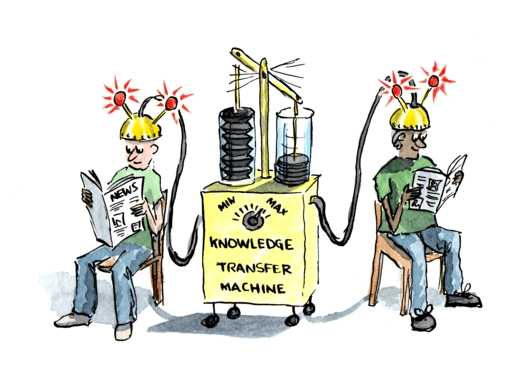r4d Skills Knowledge for Development

For more than 20 years development cooperation agencies has been exploring more effective ways of using internal knowledge and of acquiring external knowledge. Which roles do and can researchers take in these attempts?
The “1989-99 World Development Report on Knowledge for Development” published by the World Bank marked the beginning of a new discourse of knowledge-based aid. The underlying assumption is that knowledge-based aid leads to more efficient and effective agencies and aid. Kenneth King and Simon McGrath (2004) explored what this shift implied in four development agencies.
The r4d programme started in 2012 as a joint initiative between a development agency and a science foundation with the aim to provide knowledge, tools and technologies for development. The underlying assumption is that researchers in transnational partnerships using inter-and transdisciplinary approaches and adequate communication deliver results that can be used by policy makers and practitioners.
In our r4d Skills on 14 August 2018 , Kenneth King provides a critical input on the ambitions of knowledge-based aid, looking back on this agency-wide phenomenon 15 years after their book publication. Participants discuss their experiences with engaging stakeholders and thus reaching out to the development world. As a joint wrap-up the pros and cons of the two approaches “knowledge for development” and “research for development” are explored, with an emphasis on the role of researchers.
Kenneth King is professor emeritus of International and Comparative Education at the University of Edinburgh. His research interests focus on the history and politics of education, skills development in both the formal and informal sectors of the economy and on aid policy towards all sub-sectors of education.
